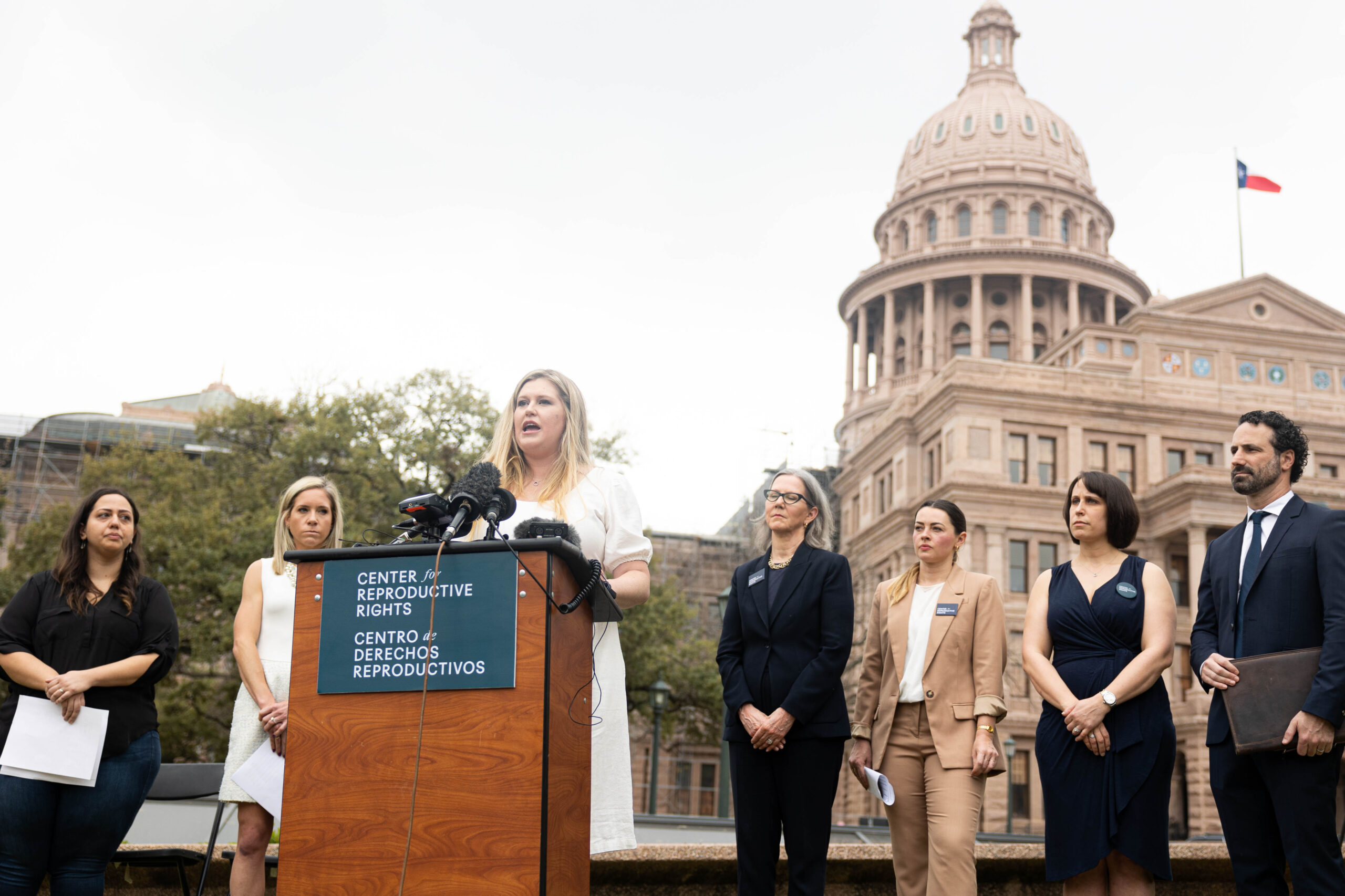Five women who say they were denied abortions despite significant risks to their lives or their fetuses sued the State of Texas this week.
This appears to be the first time that women directly impacted have taken legal action against laws that have shut down access to abortion in many states across the country since the U.S. Supreme Court’s Dobbs decision overturning Roe v. Wade last year.
In the case of Texas, the state abortion ban allows exceptions when a physician determines there is risk of substantial harm to the mother, or if the fetus has a fatal diagnosis. But as a practical matter, obtaining an abortion, the plaintiffs say, has not been possible because of the penalties.
Doctors face the potential for long prison sentences, six-digit fines and the loss of medical licenses, which has scared many into not providing abortions even in cases where the law appears to allow them.
Joanna Grossman, a professor of law at Southern Methodist University in Dallas, said all five women faced severe medical conditions related to their pregnancies.
“They all had wanted pregnancies that went bad,” she said. “In some cases, the fetuses themselves had severe abnormalities, such as the lack of a skull and a partially formed brain. And in a couple of cases, there was premature loss of amniotic fluid. That meant the pregnancy would not be able to continue. But in all five cases, the women were denied the abortions that were necessary to protect their own health and life because those fetuses still had cardiac activity.”
Under the narrow exception to Texas’ abortion ban, if there is still cardiac activity, doctors are not allowed to intervene unless the patient is “at death’s door,” Grossman said.
“This is the first lawsuit brought by the women who are actually affected by these laws, who are denied abortions because of a ban,” Grossman said. “This lawsuit does not seek to overturn the state ban. What they’re asking for is a declaratory judgment that confirms that physicians are permitted to perform abortions in situations where there’s an emergent medical condition and an abortion is necessary to preserve, not only women’s lives, but their health and fertility.”
Several of the patients involved in the lawsuit left the state of Texas to get the medical care they needed. One went as far as Seattle, Grossman said, which was an expensive alternative to local care.
There are some estimates about how many patients have gotten abortions under the exceptions to the Texas ban.
“There’s a project called WeCount that is trying to look at this,” she said. “The estimate in Texas is that there have been fewer than ten per month since the ban took effect, compared to about 5,000 a month prior to the passage of the state’s restrictive abortion laws. So hardly any are being permitted.”
Grossman said she expects to see similar lawsuits raised across the country in other states with restrictive abortion bans.
“This situation is playing out in emergency rooms across the country. And the drafters of these bans say, well, that’s an unintended consequence,” she said. “But the consequence is that people are literally dying on emergency room floors waiting to get abortions that they’ve been denied. So I think it’s very important in terms of drawing attention to the way that the abortion bans have impacted every single aspect of obstetrical care, not just abortion care.”
Grossman said her hope is stories like these will help push for reform that makes pregnant patients safer.
“In other countries, we’ve seen that drawing attention to these kinds of cruel and dangerous situations has been very effective in urging law reform,” she said. “And so it’s possible that this kind of strategy will attract attention that will have a cultural or social impact in addition to whatever relief they might get in these lawsuits themselves.”
There is no sense of a timeline for the Texas lawsuit yet, and state lawmakers appear to be split on their desired outcome.
“Many of the legislators who supported the ban have said they believe there should be some kind of either change to the law or clarification about this medical emergency exception,” she said. “But the attorney general has consistently taken the most aggressive and most threatening position possible in order to scare doctors out of performing abortions even when necessary.”














